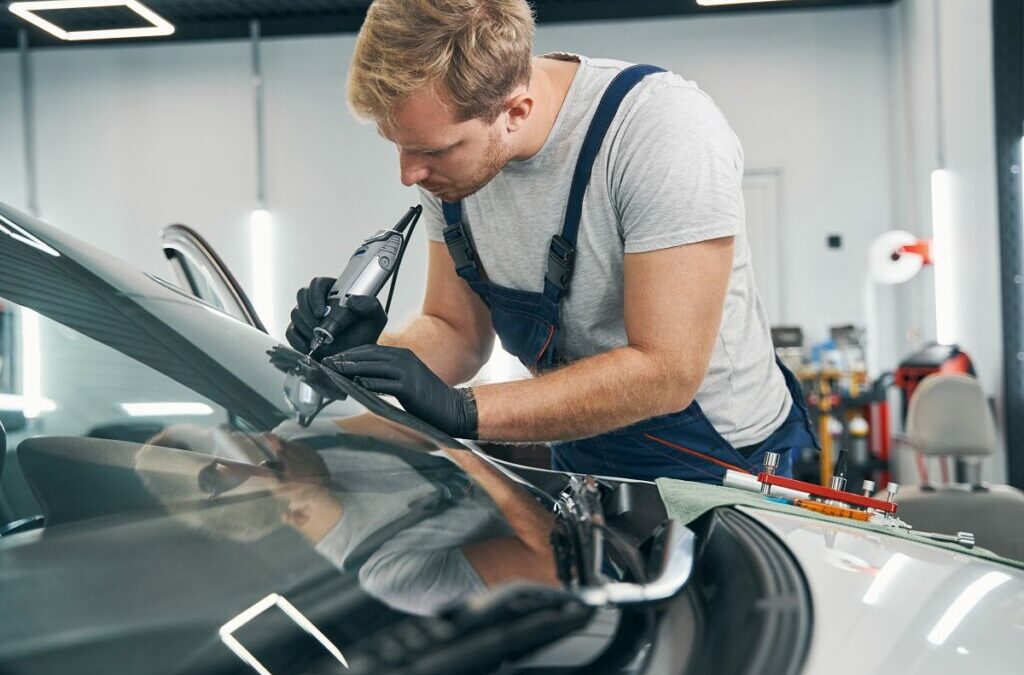Your car’s windshield is not just glass; it plays a more crucial role. A car’s windshield is responsible for the structural integrity and safety of your vehicle. Understanding the science and technology behind the strength and safety of windshields is essential for every car owner. Thus, let’s delve into the secrets that make your car’s windshield a vital safety component, protecting you and your passengers during your journeys.
The Windshield: More Than Just a Glass
The windshield of your car is a multi-functional component that serves various purposes beyond merely keeping wind and debris out of your vehicle. It is designed to withstand impact and contribute to the overall safety of the car.
Understanding Windshield Composition
Car windshields are made of laminated glass, a specialized type of safety glass that offers higher strength and protection compared to regular glass.
- Laminated Glass: A Key Component
Laminated glass is a two-layered glass with polyvinyl butyral or PVB sandwiched in between. The PVB layer offers strength and prevents the glass from shattering.
- Bonding and Adhesive Technology
The glass and PVB interlayer are bonded together using advanced adhesive technology. This bonding process ensures that the glass stays intact even when subjected to significant force.
Importance of Proper Installation
Proper installation of the windshield is crucial for its strength and safety. Skilled technicians follow specific procedures to ensure a secure and reliable fit.
Windshield’s Role in Vehicle Structural Integrity
The windshield is one of the major components responsible for the structural integrity of the car. It provides support to the roof and prevents the collapse of the cabin during rollover accidents.
- Impact Resistance and Safety
The laminated glass design enhances the windshield’s impact resistance, protecting the occupants from flying debris and objects during collisions.
- Protection from Debris and UV Rays
Apart from impact protection, the windshield acts as a barrier against road debris, dust, and insects. It also filters harmful ultraviolet (UV) rays, reducing interior fading and providing UV protection for passengers.
- Preventing Ejection During Collisions
During a collision, the windshield prevents the occupants from being ejected from the vehicle, reducing the risk of severe injuries or fatalities.
Windshield’s Contribution to Airbag Effectiveness
The windshield plays a role in the proper deployment and effectiveness of airbags. It directs the inflation of the airbag towards the vehicle occupants, ensuring maximum protection.
Maintenance for Longevity and Safety
Regular maintenance of the windshield, such as cleaning and inspecting for chips and cracks, is vital for its longevity and safety.
Replacing a Damaged Windshield
Promptly replacing a damaged windshield is essential to maintain the safety features and integrity of your vehicle.
Windshield Safety Standards and Regulations
Windshields must meet strict safety standards and regulations to ensure they provide the necessary protection during accidents.
In Conclusion
Your car’s windshield is more than just a piece of glass; it is a vital safety component that contributes to the structural integrity and overall protection of the vehicle. However, a windshield can incur damage due to severe impact which then compromises the safety of you and your passengers.
Therefore, it is also necessary to look after your car’s windshield. The best way to do so is by hiring windshield services from Imperium Auto Glass. We are located in Houston, Texas, and cater to all sorts of windshield issues. Contact us now to hire our services.

